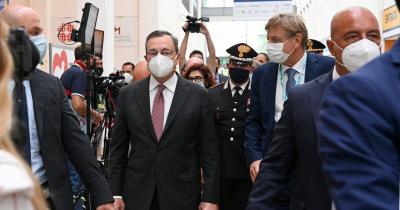Mario Draghi 'the greatest central banker of modern times'

ROME - Mario Draghi was in 2019 described as “the greatest central banker of modern times” by the economist Paul Krugman, and is credited with saving the euro during his tenure as President of the European Central Bank (ECB). All this a glowing report of the man on Wednesday invited by President Sergio Mattarella to the Quirinale for talks aimed at forming a new government.
Though he has never held elected political office, Draghi’s named has been mentioned many times since the start of this political crisis, which began with Matteo Renzi withdrawing Italia Viva from the government coalition.
Draghi, 73, was born in Rome to a banker father and educated at the Massimiliano Massimo Institute, a prestigious Jesuit school in Rome. He studied at Rome Sapienza University under Federico Caffè, the renowned Keynesian economist, and completed a PhD at MIT, supervised by Franco Modigliani and Robert Solow.
In his long career he has held roles including professor of economics at the University of Florence, advisor to the Italian Minister of the Treasury, Italian Executive Director at the World Bank, vice chairman of Goldman Sachs, Governor of the Bank of Italy and, most recently, President of the ECB.
He is considered a leading force behind privatisation in Italy in the early 1990s, and abolishing the ban on the mixing of commercial and investment banks. His “whatever it takes” mindset was considered the saviour of the euro during the Eurozone crisis following the financial crash of 2008.
Draghi, a fervent liberal and Keynesian, is seen as a man with two sides - both a dedicated servant to the State, and an infiltrator of the largest global economic powers. His career has led to him being dubbed both an “enigma” and “unitalian” by the Financial Times.
ol



